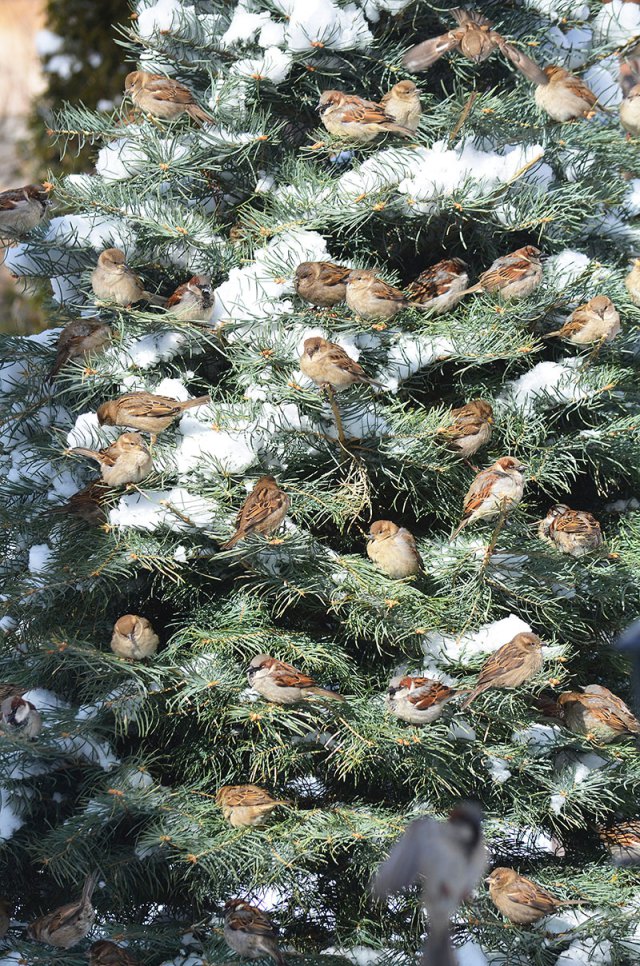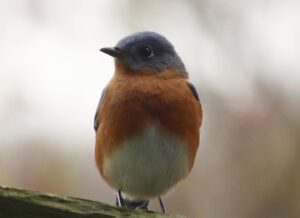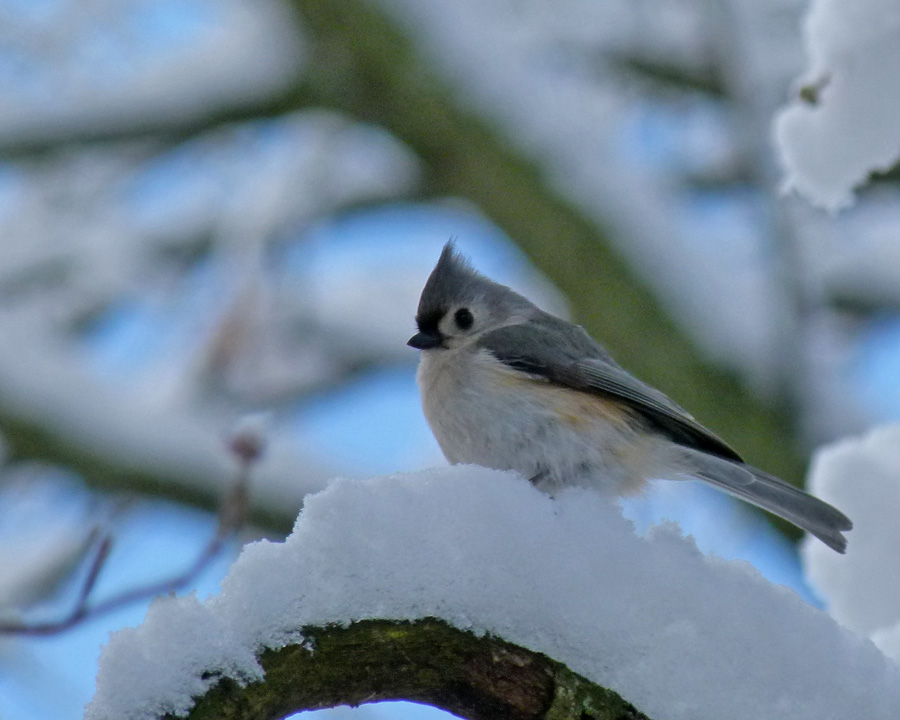
Once again, winter is descending on Kentucky in full force. I drink lots of hot tea, snuggle under my fleece blanket, and wear lots of layers to keep warm. But how do the birds deal with all this cold weather?
Get some friends to hang out with
Especially if the weather is crummy. Ever notice that nearly all of the birds that hang around in the winter do so in flocks? Having other birds around makes it less likely that something will eat you; more eyes = less chance of a predator sneaking up. Plus, if something does sneak up, you only have to be faster than the guy foraging next to you! Friends are also good at letting you know where the best food is, and they can snuggle up to keep everyone warmer.
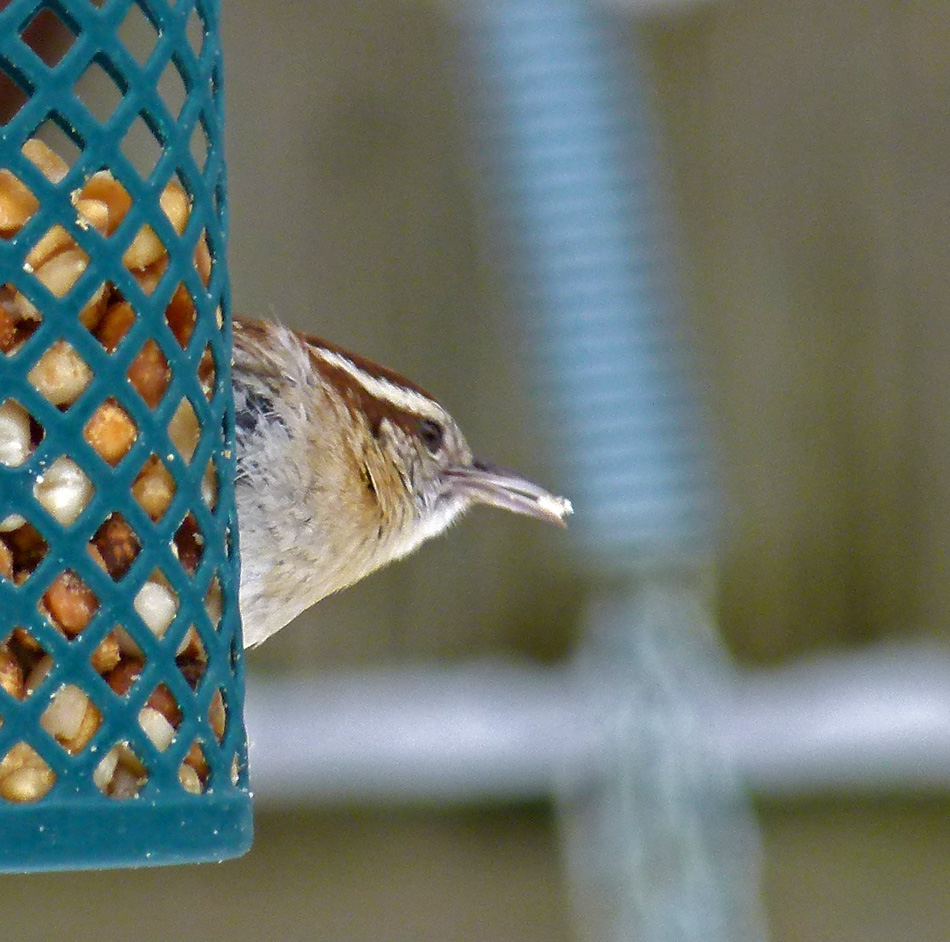
Eat as much as possible
Park yourself in front of a feeder, some seedy plants, or anywhere there is food (preferably the heaviest, fattiest foods possible, like black-oil sunflower and suet, yum!) and consume. If anyone gets in the way, chase them off and keep eating–unless, of course, they chase you off first. However, don’t eat too much, because it also makes you slower and more likely to get eaten.
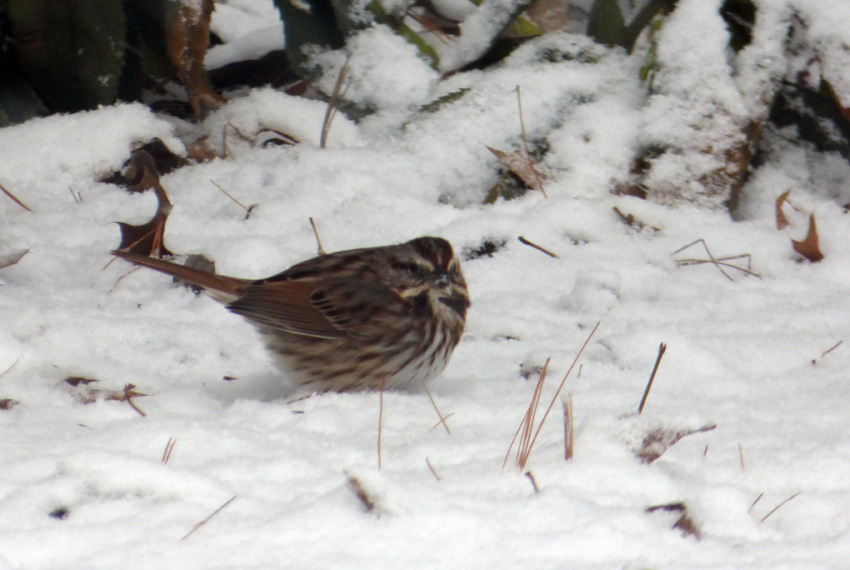
When you can’t eat more, get puffy and rest
Fluffy down feathers help complete the food + feathers = warmth equation. With plenty of food you can use your metabolism to generate heat. Feathers, in addition to keeping cold air away from the skin, do a great job of trapping body heat instead of letting it dissipate. If it’s really cold, tuck a foot or a whole leg up in those feathers. Birds have a high metabolism rate, with a normal body temp of about 104 degrees. In the winter, some can go into a torpor, or semi-hibernation, lowering their body temp when necessary.
Feathers have an oily coating that helps to insulate and keep the bird dry. All weather jacket? They molt in Fall which will grow in the new set of feathers thicker and more numerous, further insulating the bird. They fluff the feathers to add a layer of insulating air. Think our layering of clothes to keep warm. It adds pockets of air too. Birds have a feast in Fall to bulk up before winter, adding excess weight and build layers of fat. Thanksgiving dinner? They shiver like us, but when they do, use their flight muscles.
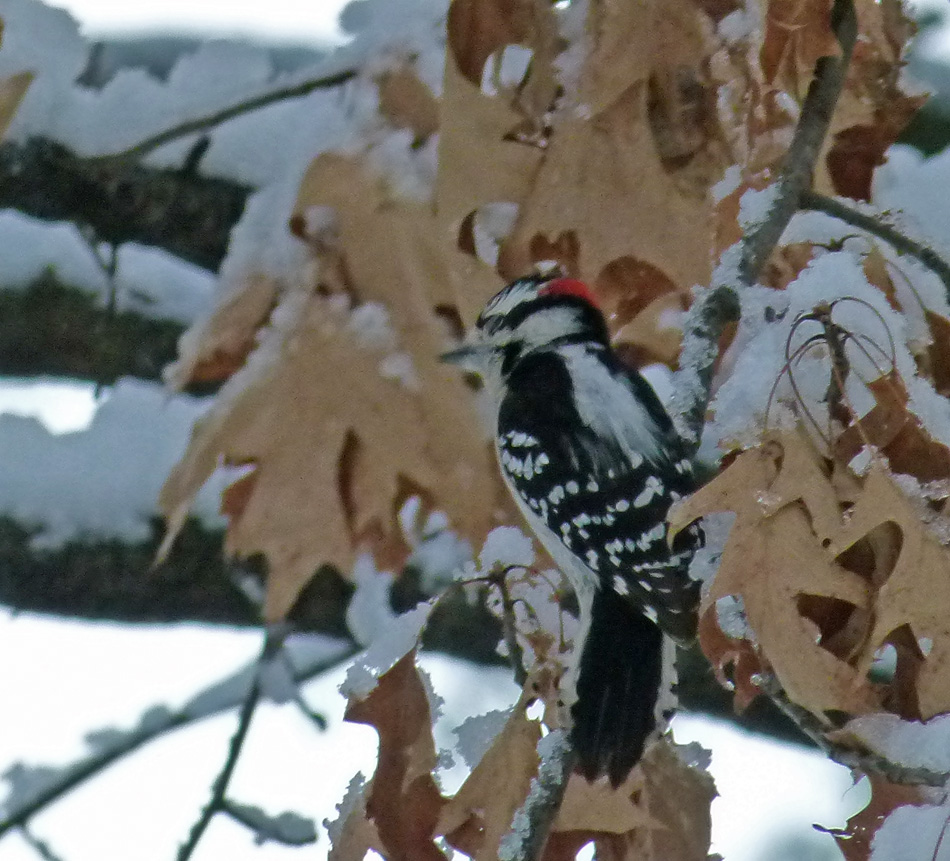
Stay out of the wind
Here’s an important hint: if the wind is blowing, go to the other side of the tree and avoid it. Seems simple, right? But it works. We all know to stand on the lee side of a building to stay out of the wind. Evergreen trees and shrubs provide terrific shelter from the wind. You might be surprised how often you see birds doing this (whether to dodge wind or to avoid rain or hot sun) once you start looking for it.
Adaptations take a long time to develop, but the birds who live here all year know how to handle the weather.
Naturally yours,
~denapple

